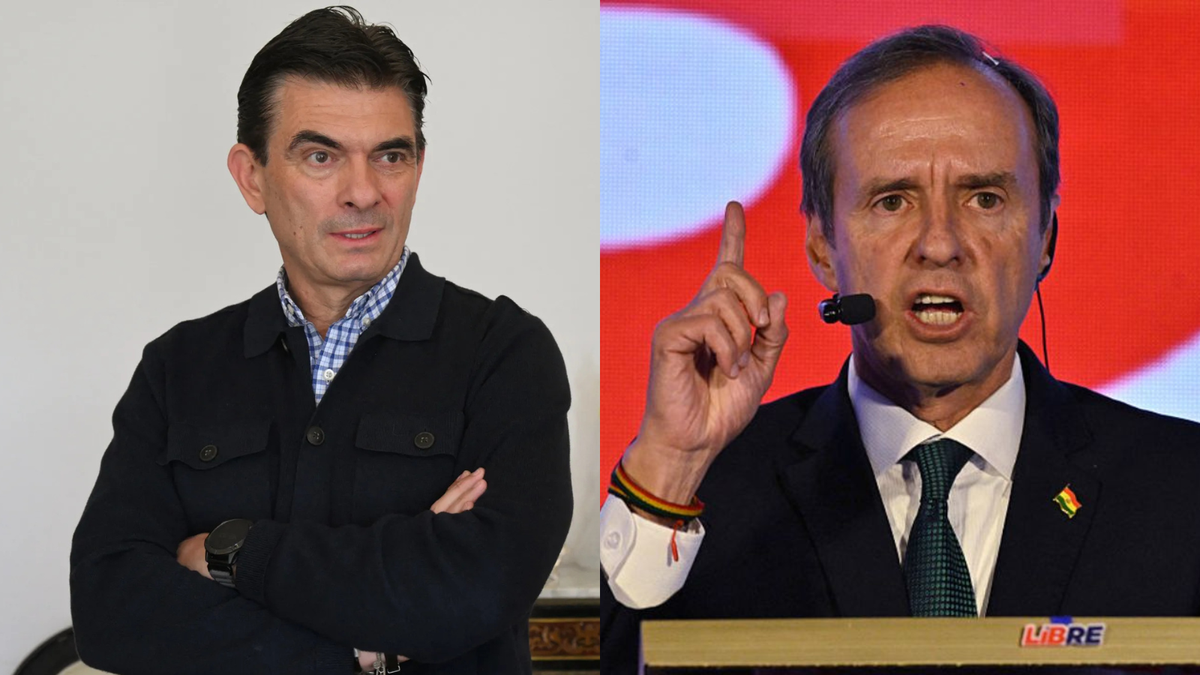In Sweden, a right-wing extremist party is the second strongest force, in Italy fascists are ahead in the polls. Is Europe falling into the hands of the right? star-Interview with the Berlin party researcher Endre Borbáth.
Mr. Borbáth, in Sweden, which is traditionally left-liberal, the Sweden Democrats received 20 percent of the votes and are the country’s second-strongest party. In Italy, the fascist Fratelli d’Italia could win the upcoming elections – will the EU fall to the right?
There are some peculiarities in Sweden that have led to the Sweden Democrats doing so well. But of course some patterns can also be observed in other countries. Right-wing parties are actually represented in all European countries. They may not necessarily become stronger, but they are definitely more present.
The successes of the European right-wing parties are reminiscent of a wave that sloshes up and down. Where are we now?
We continue to observe a wave movement, but the right-wing parties have meanwhile established themselves as political forces almost everywhere.
What are the reasons?
We are still feeling the reverberations of the so-called refugee crisis in 2015. Since then, many people have seen immigration as a problem, and right-wing parties are benefiting from the transformation of European societies. Just like separatist movements such as Vlaams Belang in Belgium and the Lega Nord in Italy. Migration allows them to raise their profile to agitate against the central state.
Is this at the expense of the established parties?
Yes, that’s another trend. In the past, the political landscape was essentially shaped by two blocs: centre-right and centre-left. But in recent years, the relevant parties have become weaker and weaker. Instead, many voters are drifting to the fringes on both sides of the spectrum. This was last seen in the French presidential election, where left-wing populists were strong in the first round and Marine Le Pen benefited on the right. Similar recently in Sweden, where the right-wing Sweden Democrats have lured voters away from the conservatives.
Elections will soon take place in Italy and the Fratelli d’Italia, an openly post-fascist party, is leading the polls. Are the right becoming more extreme?
No, on the contrary. Most of them are more moderate. Also Giorgia Meloni, the leader of Fratelli d’Italia or the leaders of the Sweden Democrats, who have their roots in the Nazi skinhead movement. Both are trying to break with their right-wing heritage and position themselves as a viable alternative to the center parties. And there is another point in the story.
Which?
Anyone who has such an extreme past as Fratelli d’Italia or the Sweden Democrats will reach their limits when it comes to election results. It’s over at five or seven percent. But in order to grow stronger, movements like Fratelli d’Italia are almost forced to cut their roots. Especially since they also want to be able to connect and form coalitions with the center parties. But of course they must not completely lose sight of their original basis.
And the center parties look on helplessly?
One must not forget that the rhetoric of the right is shifting the debates in the mainstream parties in their favour. So in this case to the right. The right-wing and conservative parties are thus converging. And in the case of Sweden, you can see that the positions of the Sweden Democrats are legitimized by their alliance in the conservative bloc. Similarly, Forza Italia socialized the post-fascists of the Fratelli d’Italia.
Unlike in the past, the European right-wing parties are well networked with each other. Does this help you?
In any case. Simply by exchanging strategies and resources such as advertising and social media links that they can share in this way. Check out Nigel Farage’s UKIP (the UK’s far-right Brexit party, ed.). He has masterfully used the European Parliament for his slogans. As a result, other right-wing parties have only recognized the opportunities that this stage offers them.
In the meantime, European and American right-wingers have also formed a network.
Yes. The CPAC is the rendezvous of right-wing US Republicans. This year the conference took place in Europe for the first time. In Hungary and Prime Minister Victor Orban gave a speech.
International nationalists – that sounds contradictory at first. What connects right-wing movements?
First and foremost, it is socio-political developments that they reject across the board: gender issues, lesbian and gay rights, equal rights for women and, of course, the overarching issue of migration.
On other issues, however, things get difficult. As Poland’s governing party, the right-wing PiS is expressly opposed to Russia and the aggressive war in Ukraine, while in Hungary the Fidez party is more well-disposed towards Putin.
Yes, this is one of those conflicts that will probably never be resolved and that form the limits of right-wing populist cooperation. At the same time, both states are under observation by Brussels because of their lack of democratic structures – and on this point both governments support each other.
You are from Hungary. Is the impression that Victor Orban will be able to continue his legal course for a long time to be misleading?
Before every election, Hungarians are hopeful, but then again the opposition fails to win. Orban enjoys broad support mainly because of the economy. Even if the country is not developing as well as other Visegrad states, people are doing better every year. But that could change with inflation and the coming energy crisis.
Because of the war in Ukraine, many Europeans are currently anxiously looking forward to the cold season. In Germany, there is a fear of a “winter of anger”. Will the foreseeable difficulties strengthen the right-wing parties?
I think they will strengthen the opposition in general. It doesn’t matter whether it’s on the left or the right. So if the right-wing bloc in Sweden soon takes over government, the Swedish Social Democrats should benefit. Ultimately, of course, this also depends on the crisis management of the respective government.
Are there European states that are “immune” to right-wing parties?
no Increasing European integration and immigration alone will reliably lead to counter-reactions. Incidentally, the only country that does not have a significant right-wing party is Ireland.
Source: Stern
David William is a talented author who has made a name for himself in the world of writing. He is a professional author who writes on a wide range of topics, from general interest to opinion news. David is currently working as a writer at 24 hours worlds where he brings his unique perspective and in-depth research to his articles, making them both informative and engaging.




